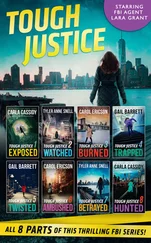She looked down at her lap. Billy cleared his throat, leaned forward, and started going through the duffel. Jake looked contentedly off toward the 15.
“Mom? Just listen to me.”
Something in that little voice glued my mouth shut. The adult tone that she adopted combined with the timbre of its sound was unsettling. I found myself unable to do anything but comply, as though I had been hypnotized by a viper.
“Things haven’t been going so well since we’ve been out here. There was James and them. Then Jake and I got picked up by those people. I’m always waiting for you or Billy or Jake to save me. If I had a gun, I could protect myself. I could protect you.”
I was struck then by how she must have felt. Elizabeth is my daughter, and I will always love her no matter what but in those early days when we were on the run, I’m ashamed to admit that I didn’t factor her in as much more than baggage with a mouth. She was a responsibility that had to be juggled along with all the other needs. If we had to scout an area, she was a problem that had to be solved first; a bit of logistics. I hadn’t spent a lot of time thinking about her perspective up until that point. People want to feel useful, and they want to feel as though they have some sort of control over their own destiny—even seven-year-old people. This poor girl kept getting shucked from situation to situation without any real say in what was happening to her and she was just looking for some sliver of self-determination. Once upon a time, I would have become frustrated and angry at her continuing to argue with me after I had made a position final, especially on such a hot topic. Now, I was just tired and heartbroken.
“You’re right, Mija. You’re right. But seven is still too young. I know you’ll be eight very soon, but no. I’m sorry. Just a little longer.”
“Mom…”
“ No .”
Now Elizabeth became frustrated. Years of conditioning at the result of being raised by a Hispanic mother meant that she didn’t pound her fist, raise her voice, or exhibit any of the other temper tantrum behaviors that had become so common in our youth. Lizzy was old school (because I was old school) and she knew that didn’t fly. Her mouth only tightened to a line as she calmly but slowly stood from her chair, walked carefully back to the tent, pulled back the flap, and went inside. It was about as close as she came to storming off in a fury.
The boys both remained uncomfortably quiet after Lizzy had gone, studiously focusing on their own immediate areas. When I’d finally had enough, I asked, “Was I wrong?”
Billy shrugged. “You’re the mom. Even when you’re wrong, you’re right.”
There must have been some frustration left in my look when I glanced in his direction. He put his hand out gently in a holding-off gesture. “Take it easy. You were right in this case. I agree with you: seven is too young. There’s still too much development that needs to happen at that age… too many fine motor control issues. She’s old enough that we could start teaching her how to shoot a gun, if you’re okay with that, but that’s only under constant supervision with one of us over her shoulder at all times. You wouldn’t want to just hand her a firearm and forget about it at her age.”
This, of course, begged the question: “What age do you think is appropriate?”
“I don’t want to put a number on it,” Billy said while scratching under his chin and jaw. It was clear the white scruff of his beard was bothering him. “Depends on the individual. I make it a range from about ten to fifteen, if that helps.”
“It does,” I said. “It gives me about two more years before I have to start worrying about daily heart attacks.”
Jake snorted abruptly from his chair, the sound made sharp and angry by his currently useless nose. It startled us both and Billy grinned sheepishly.
“Hand me your rifle a minute please, Amanda,” Billy said.
I looked down and popped the swivel from my sling’s attachment point on the stock (a trick Billy had demonstrated the night before during our drinking session) and handed the rifle across to Jake, who passed it along to Billy. I watched as Billy pulled the magazine out of the receiver and worked the operating handle to eject the bullet from the chamber. Sliding the bolt back to double check the chamber (“being triple and quadruple sure is always the right thing to do,” he always told us), he took the safety off, pulled the trigger, and put the safety back on.
He laid the rifle down in his lap, bent over it, and reached into the duffel bag at his feet. He pulled out a small and irregular shaped flashlight from the bag—it was black, swelling from a cylindrical to a square, blocky profile. He stuffed this into the left breast pocket of his Chino shirt, working his wrist in a few circles to get the light around and under the pocket flap.
Reaching down to the rifle, he manipulated a panel on the front end just to the left of the muzzle. He slid it forward, and it came completely off the weapon, exposing a line of bumpy ribs that looked just like the spine along the top of the gun where the optic was mounted. He put the panel in the duffel bag.
He produced an Allen wrench, pulled the bizarre little flashlight from his shirt pocket, put it on the exposed portion of the rifle, and started fiddling with the wrench. He began talking as he turned it.
“They used to make about a jillion different rail accessories for these rifles back in the world but the only ones I ever thought made any sense were optics and lights.”
“Those things are called rails, huh,” Jake asked, saving me the trouble.
“Yap. Picatinny rails or Weaver rails. All the same thing: a place to bolt on a bunch of heavy shit and accessorize your weapon like it’s a god damned bedazzled handbag.”
He handed the rifle back to me by way of Jake. “In this case, it will most likely be dark in the Walmart. You don’t want to be goofing around with a rifle and a flashlight. Best to put the flashlight on the rifle. Don’t look into that light, now. The package I pulled it from said ‘1000 lumens.’ That’s enough to suck.”
I found the little button on the back of the unit and pressed it. Even in the early morning light, I could see its beam in the dirt in front of me. I pressed the button to turn it off, but it started flashing at intervals. I pressed it again, and it went back to being solidly on.
“Hold it down,” Billy offered. I did, and it turned off. I shouldered the rifle and put my left thumb on the button without activating it. I liked that I could reach the button without having to move my whole hand. I was distracted by Jake, who was holding the magazine out to me.
Taking it, I said, “What about you? No light for the shotgun?”
In answer, Billy grabbed it by the stock and held it straight out in front of him, rotating it slowly so I could see it on all sides. “No rails,” he said contentedly and placed it back on the ground. “There are special kits and adaptors that you can get to modify the hell out of an 870… in fact you can even bullpup it, just like your Tavor there. But I could never bring myself to screw with perfection.”
We finished out the morning by brushing our teeth, cleaning our hands and faces with wet wipes (Billy packed the essentials as good as any professional mother), and striking camp when all of this was finished. Billy began shifting critical survival items like food, water, and tools from the truck to the back of the Jeep where it could be locked up in an enclosed shell. The gun bag went in the back of the Jeep as well. I rolled up the sleeping bags and worked on taking down the tents with Lizzy. Jake tried to help in this activity, but he was forced to move slowly and deliberately to avoid dizzy spells, which meant that we ended up accomplishing three or four tasks for every one of his. We had our tent completely bundled and stowed while he was still busy breaking his down, even accounting for a false start in which the tent wouldn’t fit in its carrying bag because we had folded it incorrectly. We went to him to offer help hesitantly, wondering if he would be irritable and insist on doing all the work himself. Instead of being annoyed, he gratefully accepted.
Читать дальше












